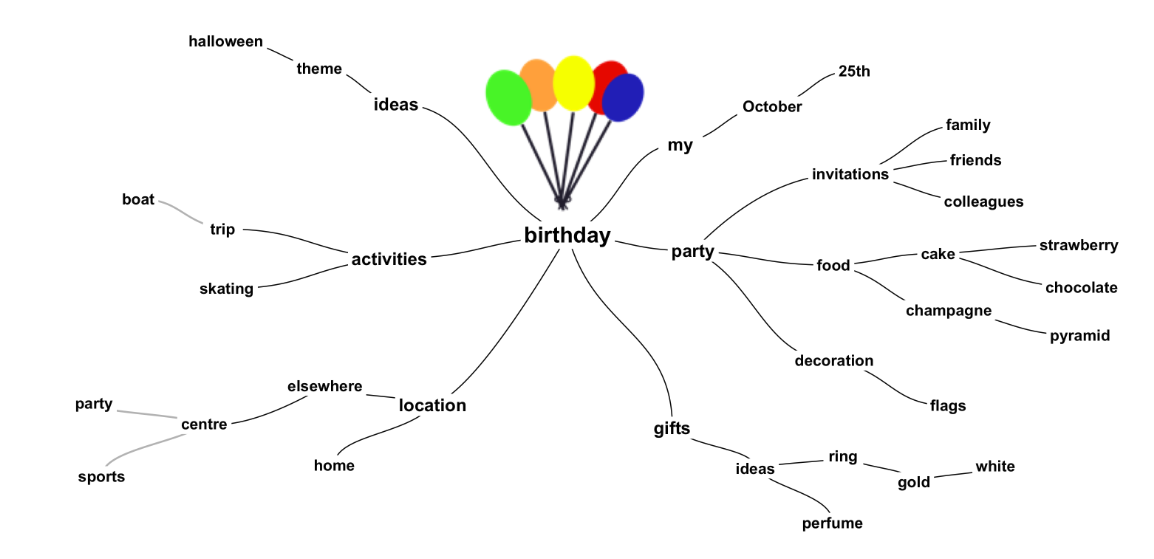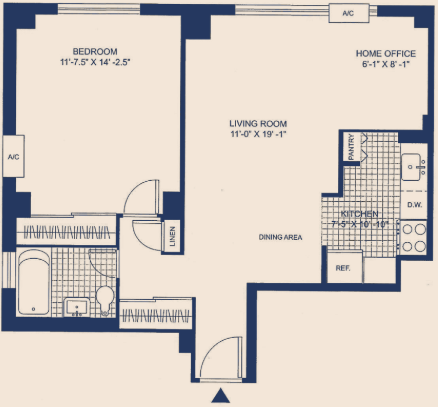
The Good News First
Your memory isn’t a fixed capability. There is no such thing as a bad memory if you are in good health. Only untrained memory.
The 1956 paper “The Magic Number Seven, Plus or Minus Two” discovered the tipping point for our short-term-memory is about 7 items and we can improve both that number as well as our short- and long-term memory.
2 Main Types
We learn in a variety of ways. Two of the main ones are:
Auditory Learners:
Record yourself and listen to it repeatedly. Utilize audio. We go into more detail about songs further down in this article.
Visual Learners:
Draw. Use google images when searching for stuff. Infographics. Dates on a timeline. Mind-Mapping.
Pro-tip: Classical music and binaural beats are known ways to improve your performance regardless of your learning-type.
Repetition

Write it Down, Speak it Out Loud, Quiz Yourself, Repeat it
Repetition helps you remember. Repetition helps you remember. Repetition helps you … and is one of the easiest ways to remember things. But it can become very inefficient as a method by itself when facing large volumes of data. Do you still remember a song from long ago? Besides emotional attachment, the sheer volume of repetition makes song lyrics stick even a century later.
Exaggeration

What did you eat for lunch on Tuesday 6 weeks ago? Not an easy one to remember. But this one time you got food poisoning a decade ago? That’s a meal you will never forget.
The more ridiculous the better. Remember Lady Gaga’s meat outfit? Who wouldn’t?
Chunking

The Phone Number Trick:
373282398 -> 373 – 282 – 398
The Categorie Trick:
1 Tomatoes 2 Turkey 3 Milk 4 Cucumbers 5 Ham 6 Yogurt 7 Strawberries 8 Salami 9 Eggs ->
Produce (Tomatoes, Cucumbers, Strawberries)
Deli (Turkey, Ham, Salami)
Dairy (Milk, Yogurt, Eggs)
Association

“The Baker Paradox”:
People are shown a photograph of a person. Half is told he has the last name Baker and the other half is told he is a baker (as in the occupation). People remembered the second person more. Even though they were both called baker. We associate things. I.e. memories are triggered like the baker’s apron full of wheat or the smell of breed.
Songs and Song lyrics:
You hear a song and instantly remember what you would usually do when this song plays. You hear it on the radio in your car on your way to work, when you were doing laundry or during workouts. Chances are, you even still know the song lyrics by heart. Pack information into songs, just like your teachers did with the ABC.
Memorable details:
You meet Tim. He wears a blue tie. Blue-Tie-Tim. You won’t forget Blue-Tie-Tim’s name forever! (Oh no, now every person with a blue tie reminds you of Tim. You miss Tim…)
Verbalization

Alliteration: (Coca Cola, Krispy Kreme, Best Buy, Dunkin Donuts…). You may have a hard time trying to remember Tim’s name. How about Tall Tim? Perhaps Talks-A-Lot-Tim or Timid Tim.

Rhymes: In 1492, Columbus sailed the ocean blue. It needs a little bit of rehearsal but is a lot easier to remember. You can cut it even shorter:
1773: Boston Tea Party -> 73, heavenly tea
1862: Civil War -> 61, sticky gun
Pictures & Patterns
We remember visual information far better.

Let’s combine it with some other methods to make it even more effective!
Chunking + Association + Visualizing + Story:
XIBMPHDACTMTVX -> X IBM PHD ACT MTV X
IBM – Picture a guy with thick glasses
PHD – He has one on his wall
ACT – He studies for that, weird, he already has a PHD
MTV – On in the background distracting him. He will fail the ACT!
Mnemonic

Acronyms, Rhymes, Memorable Phrases
PEMDAS ->
Please Excuse My Dear Aunt Sally ->
Parenthesis, Exponents, Multiplication Division, Addition Subtraction
Make your own or look other people’s Mnemonic’s up!
Notes

Strengthens memory even if notes are not used later on.
(Writing down = repetition).
Don’t get caught up in too much detail and don’t always try to take notes immediately. You might need to read the entire text or hear a bit more of a speech before you know which details need to be highlighted.
Mind Mapping
A form of visualizing and organizing information similiar to brainstorming

The Link System

Elephant, Hat, Meat, Number ->
You are riding the world’s tiniest elephant. Get off him, you are heavy!
You are riding that elephant on top of a huge hat! That’s right, you two are the hat’s hat! You are hungry, so you bite into this giant hat for some of that delicious hat-meat. You ate so much hat-meat, you became numb. If you eat anymore you will become numb’er!
Notice how exaggeration is mixed in. The last one isn’t even English anymore, perfect!
Memory Palace
Aka. The Method of Loci (Greek: Place)

Use a familiar place and decide on a specific order.
You go to your house’s front. (1) At the entrance (2), there are 99 carrots. You open the door (3), there is that missing 1 carrot lying in the doorway floor. (4). You must have dropped it on the way out. You go to the bathroom (5) next. There, you find your cute goldfish couple in the sink because they are washing their hands (6).
Similiar Sound Technique

Claustrophobia – Santa Claus, he is afraid of getting stuck in the chimney
Explained like this even a 7-Year-Old would remember it!
Belonephobia. It sounds like Baloon. Balloons are afraid of sharp things that make them go pop. Belonephobia means fear of sharp objects.
Numeric Mnemonic Peg System

Peg each number to a picture. Then you can use that list to help you remember stuff.
1 - Pen, 2 - Swan, 3 - Mc Donalds Logo Sideways, 4 - Upside down Chair, 5 - Cloth hanger mounted onto the ceiling, 6 - The o.k. emoji, 7 - Lighting Bolt, 8 -Sideways Pretzel, 9 - Tilted Baloon, 10 - Plate and silverware
Let’s try to remember: 3 Sandwiches, 2 Ham, 1 Turkey
How much Ham and Turkey? Visualize a dead turkey. The poor thing was stabbed with a sharp pencil. The rest of the meat was also done by an (h)amateur
Create a new theme for every 10 items:
11 to 20 could be gold.
Let’s say you want to remember bread.
11 – Consists of Pen (1) and Gold (Theme)
We Remember:
Bread is supposed to be stabbed with a golden pencil to certify it is real GoldenBread (TM).
Multiple Reading Process (3 Steps)

Preview: Read-only the introduction and conclusion
Overview: Read headings, bold-words and the first sentence of each paragraph.
Read: Read it all, from the beginning, top to bottom.
Bonus Tip: You can read faster than you think if you follow the text with a pen or finger (our eyes naturally wander otherwise).
Passwords and long numbers trick

Password: Make a short phrase. Then just type the first letter of each entity (case-sensitive).
“Hi. They call me 3-Legged-Bob. I am 33 years old.”
HTcm3LbIa3yo
Need to remember a long number like 23832426?
Make a story where each word has equally as many letters as the respective word in the story.
Hi, Tom. Remember how we went to Germany? (2,3,8,3,2,4,2,6)
Power Naps

Power naps are known to improve memory retention. To avoid oversleeping during one, drink coffee before a ~20-minute power nap. Caffeine starts to kick in after about 10 minutes, reaching a peak after 45. This makes it perfect for avoiding oversleeping a powernap.
Side-note: If you drink too much coffee on a regular basis and it doesn’t work very well for you anymore, you can either increase the dose or reset your tolerance by taking a 2 week break.
Storys

By now you know how powerful stories can be. Be it to remember a password by utilizing the length of each word, creating a little story for each detail in your memory palace or otherwise. Even just beginning a phrase with “Once upon a time” can help you out.
A Genius of Hard Work

You can also improve your IQ and EQ. Naturally smart and talented people may have the advantage in how fast they grasp an unfamiliar situation, concept or learn new methods, but that does not stop you from training and learning concepts both basic and advanced and becoming smarter through hard work! By knowing foundations and constantly training new things you create highways and wires in your brain. E.g. even if you have a hard time learning a language and take longer than your peers, once you master that language you will be far quicker learning another one.
Conclusion

You have probably noticed by now that most of these methods and tricks are most effective when you combine them. There are a plethora of little memory tricks out there and perhaps you can even come up with your own. We tend to somewhat lazily just flip out flashcards and grit through tasks, but utilizing these methods not only makes it easier and more efficient, but it also creates habits and trains your memory effectively making you smarter. (This doesn’t mean you don’t have to grit, but you can grit faster, better and stronger by using the right strategies!)
These few tricks alone can easily double your memory capacity from 7 to 14 items and beyond.


